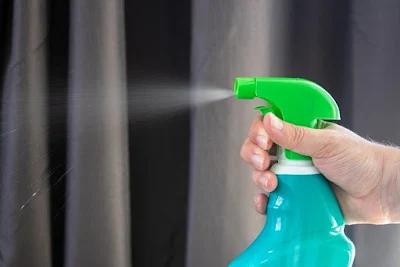Living in the New Normal: Modernizing Cleaning Practices amidst COVID19
Ever since COVID-19 has turned the world upside down, cleaning has become more important than ever. Nowadays, simply using a vacuum cleaner to pick up dust, or wiping down walls and furniture with water and some disinfectants are often no longer enough. The COVID-19 virus is suspected to be an airborne pathogen. This makes it incredibly hard to know if the virus is within your home, office, or even in your transport vehicle. You can spend the entire day cleaning every nook and cranny and still catch the virus because it is apparently on your dirty clothes hamper the entire time. It’s not like we could also clean the air manually, and it is extremely dangerous to take the risk of not doing anything at all.
Older
cleaning practices must be modernized to adapt to this difficult time. Here are a few ways to take your cleaning practices
to the next level:
Plan weekly disinfection
Disinfection
is most commonly a part of the cleaning process. There are numerous
multi-purpose disinfectants out there that work great with mops and microfibers.
However, the rise of vacuum cleaners has put this process aside unless someone
in the household is sick or has allergies. As COVID19 is discovered to stick on
wooden surfaces for as long as 4 days,
it will be in your best interest to disinfect your house every week. As a
bonus, this keeps everyone in your household free from illnesses such as the
common cold!
If
you are planning for disinfection for your office, then you need to plan smart.
There are many rooms in a building that have had people come and go, and
cleaning those rooms is the number one priority. There are numerous ways to do
it, but the most effective way is to vacate the building and pump chlorine gas into the rooms once a month or so. Unfortunately, this can be a very
expensive way to disinfect a building and may take more time, money, and
effort. Alternatively, you can hire an expert bio-hazard specialist to deep clean especially if there are such incidents
involving bio-hazards like toxic waste or corrosive substances that can impose
biological threats be they in residential or workplace settings. Professional
attention is required to clean up, deodorize and disinfect to safeguard the
health and safety of those who may live or work around the incident area.
Always disinfect any purchases or belongings after visiting a public area.
While
it can be people’s habit to clean their purchases or belongings, it does not
often happen after receiving them. This is especially true with the cardboard
boxes that often hold our purchases. It has been confirmed that the COVID19 can
stick to cardboard for 24 hours at most. If you receive your package from the
mail or the mall, make sure to disinfect its surface before you bring it
inside.
In
today’s time, it is a good cleaning habit to always disinfect your belongings
and purchases before you use them again. This helps you reduce the risk of
catching the virus, and keeps your belongings clean in the process!
In
both situations, you can use 70% isopropyl alcohol to keep your belongings
clean.
Immediately wash your clothes with the warmest water allowed after going outside.
You
can never be too sure if COVID19 is in your neighborhood or not. While the
virus is less likely to survive on clothes, it can still stay on the fabric for
up to two days. Avoid placing your clothes with the rest of your laundry, and
prioritize the clothes you’ve worn first. Heat is proven to be effective with
COVID19, so using the warmest water allowable for your clothes is the best
option here.
Wear a mask!
Wearing
masks while cleaning is not new. People with dust allergies wear masks all the
time once they start cleaning the house. However, as COVID19 is invisible
unlike dust, it is better to be safe than sorry. If someone or one of your
family had gone out a few days before your weekly disinfection, immediately
wear a mask and clean the surfaces they have come into contact with immediately
like doorknobs. Wearing a mask will protect you from direct virus transmission.
Make sure to dispose of the mask immediately if it is not reusable.





Comments
Post a Comment